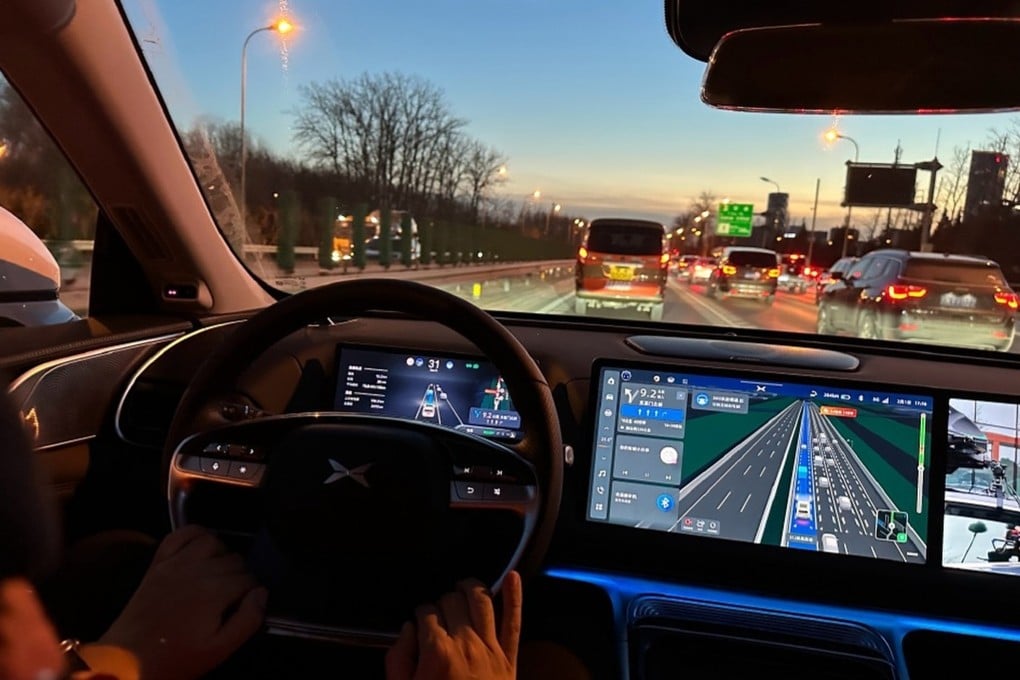Huawei, Baidu and Alibaba’s mapping service help China set standards for autonomous driving road infrastructure
- The infrastructure required to get roads ready for autonomous driving includes a range of equipment and devices
- China has spent billions of yuan on its highway system to make it future-fit for autonomous driving

Huawei Technologies, the auto driving unit of Baidu and Alibaba Group Holding’s mapping service have taken part in setting technology standards for autonomous driving on the country’s highways, as China plans for the new technology and upgrades its road network.
According to the “technical guidelines for highway engineering facilities supporting automated driving” published by China’s Ministry of Transport on Tuesday, Huawei, Baidu and Alibaba have helped the ministry’s road science academy and affiliated companies to work out technical details, along with Qianxun SI, which describes itself as a spatiotemporal intelligent infrastructure company.
Their participation in helping to set standards for the technology should put them in a good position to win future contracts. China has spent billions of yuan on its highway system to make it future-fit for autonomous driving. In 2022 alone the country spent 1.6 trillion yuan (US$219 billion) on highway upgrades, up 7.3 per cent from 2021.
The infrastructure required to get roads ready for autonomous driving includes a range of equipment and devices, from centralised cloud control platforms and traffic sensors, to communication and positioning apparatus, to roadside computing, power supplies and network security facilities.
New guidelines that govern the highway networks that will support autonomous driving are seen as a major step towards putting driverless vehicles on roads a reality in China.